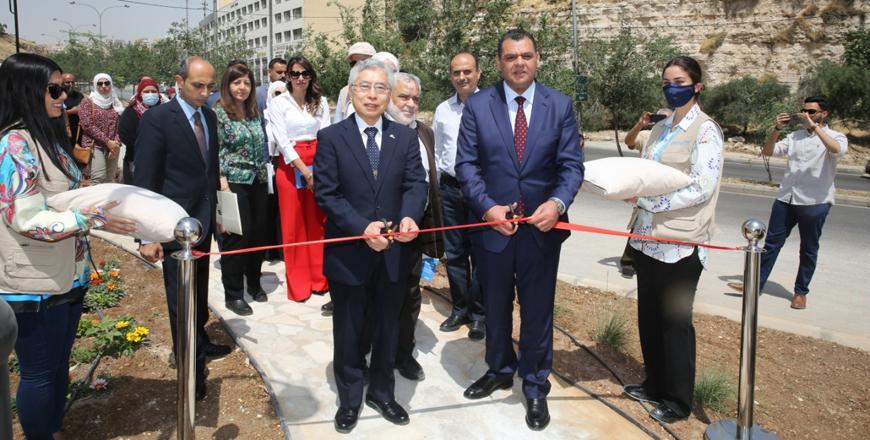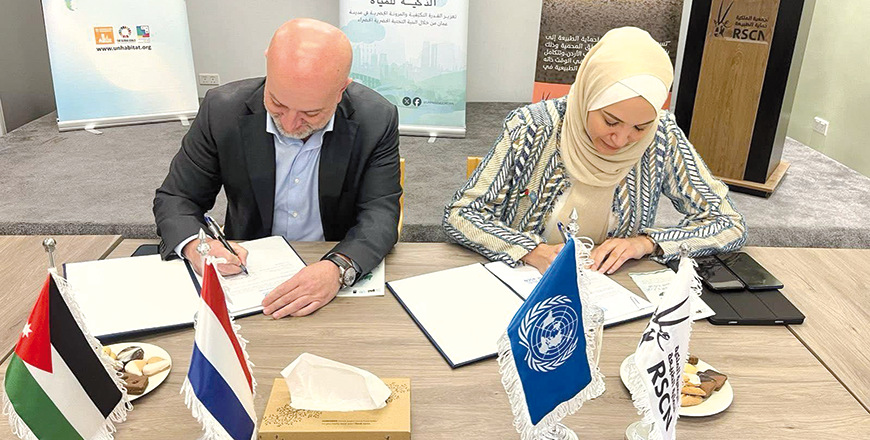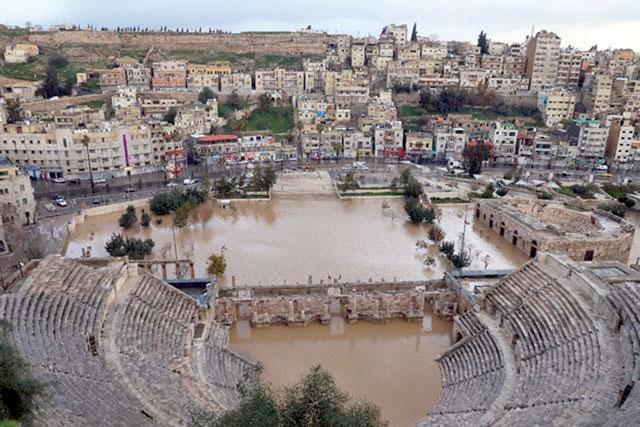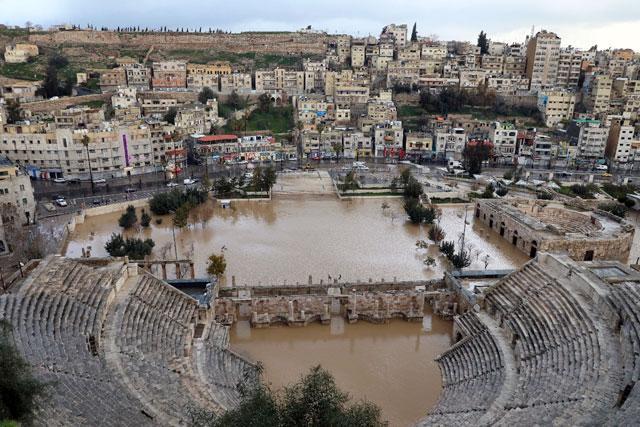You are here
GAM launches Al Zhour Green Triangle project
By JT - May 30,2022 - Last updated at Jun 01,2022

Deputy Mayor of Amman Mohammed Al Qaisi and Japanese Ambassador to Jordan Shimazaki Kaoru during the launch of the Green Flower Triangle pilot project on Monday (Petra photo)
AMMAN — Deputy Mayor of Amman Mohammed Al Qaisi on Monday attended the launch of Al Zhour Green Triangle pilot project implemented in the Ras Al Ain region.
The ceremony was attended by Japanese Ambassador to Jordan Shimazaki Kaoru and UN National Programme Coordinator for the UN-Habitat Programme Deema Abu Thiab.
Qaisi said that the newly launched project has been implemented for the first time in Amman within the Greater Amman Municipality’s (GAM) strategy to control the risks of climate change.
He also commended the strategic partnership with the UN-Habitat Programme, notably their efforts to address urban challenges associated with rapid urbanisation and mitigating the negative effects of climate change.
He also thanked the Japanese government for its continuous support for infrastructure projects in Amman, the Jordan News Agency, Petra, reported.
The Japanese envoy expressed happiness for the completion of Al Zhour Green Triangle project, implemented in cooperation with GAM and the UN-Habitat Programme, a bioretention area and temporary rainwater retention, which would help reduce flood risks.
Al Zhour Green Triangle project is among the UN-Habitat Programme’s key projects, Abu Thiab said, noting that it is the first pilot project has been implemented among 120 sites identified through a study meant to assess the risks of floods in Amman to implement short-and medium-term interventions for green infrastructure.
At a cost of $456,000, the Japan-funded Al Zhour Green Triangle project is a pilot project for green infrastructure and sustainable urban sanitation systems.
It aims to demonstrate two concepts of rainwater management: “Retaining and capturing stormwater” and improve flood resilience in Amman by providing a series of above-ground bioretention areas and a 2,500-cubic-metre rainwater retention reservoir, reducing the vulnerability of local communities and Syrian refugees to sudden flash floods, and enhancing the government’s response for flash floods, notably to improve urban flood management.
Related Articles
AMMAN — UN-Habitat and the Royal Society for the Conservation of Nature (RSCN) have signed a cooperation agreement to pilot the National Awa
AMMAN — In collaboration with Greater Amman Municipality (GAM), UN-Habitat Jordan held a workshop last week to launch the flood risk assessm
AMMAN — The Japanese government has granted the United Nations Human Settlement Programme (UN-Habitat) $978,709 to support the resilie














